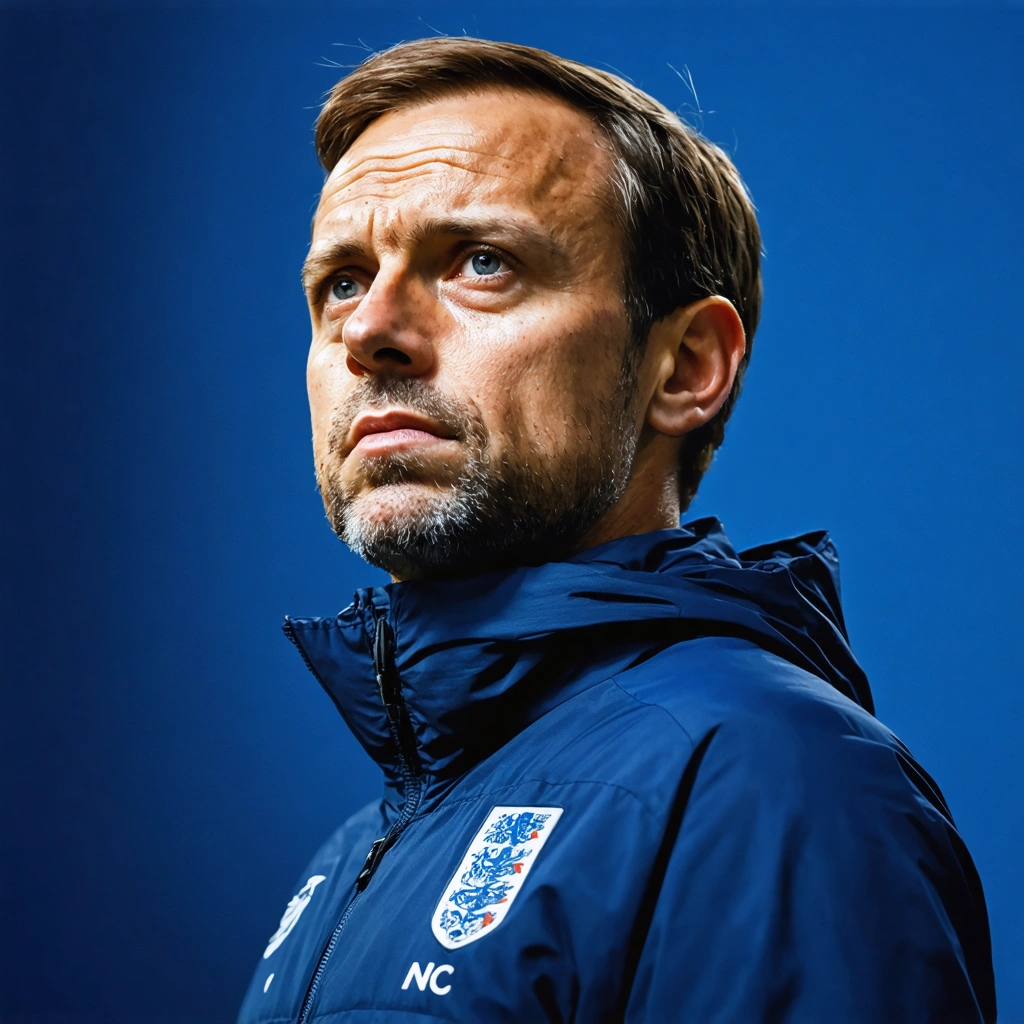
Introduction: A New Tactical Era
The English national team is entering a period of significant transformation. Amid widespread debate regarding past performances at the Euros, Thomas Tuchel’s evolving vision for the side is generating considerable interest. Nowadays, high-profile figures like Harry Kane and emerging talents such as LukeMorgan Rogers symbolize the shift in both mindset and strategic approach. An incisive reappraisal of England’s style of play is underway as enthusiasts and pundits closely monitor how these changes might affect future contests, notably the World Cup qualifiers against teams like Albania.
Thomas Tuchel’s Impact on England’s Tactical Setup
A Vision Beyond the Euros
Under Tuchel’s guidance, several aspects of England’s approach are expected to undergo refinements. His philosophies emphasize a balance between defensive solidity and attacking dynamism. Observers are already noting the following factors in his evolving blueprint:
- Intensive pressing without compromising defensive organization
- Fluid movement in attack, allowing forwards like Kane to drop deep and create patterns
- Greater reliance on versatile midfielders, including the potential role for LukeMorgan Rogers
- Increased adaptability depending on opposition, showcasing tailored game plans
These ideas mark a departure from previous structures that often prioritized set positions, providing a fertile ground for innovation in international tournaments. This renewed approach is anticipated to rectify some of the critical shortcomings observed during the Euros.
The Role of Key Players
One element of Tuchel’s strategy is his desire to maximize individual talents. Harry Kane, renowned for his goal-scoring prowess, is more than just a striker in this new system. His ability to link play, distribute the ball, and create opportunities off the ball has prompted analysts to consider him a vital part of the revised tactical setup. Additionally, LukeMorgan Rogers, who has been excelling at Aston Villa, stands as a promising candidate to integrate new attacking midfield dimensions.
Rogers, with his versatility, is being groomed to eventually play as the No 10—an advanced midfielder who is capable of orchestrating attacks. His preparations in training have not gone unnoticed, and optimism around his potential has grown even among seasoned supporters. This dynamic pairing of experienced stars with emerging talents sets the stage for an exciting chapter in England’s history.
England vs Albania: A Testbed for Change
Strategic Considerations Before the Qualifier
As England prepares for the match against Albania, strategic deliberations are at the forefront. This encounter is far more than just a qualifier; it is a testing ground for the new system. Analysts underscore several key factors:
- Defensive Reorganization: A more robust yet flexible backline is expected to counter opposition threats.
- Midfield Creativity: Integrating players who are comfortable in multiple roles ensures unpredictability.
- Forward Flexibility: Combining Kane’s finishing ability with the creative exploits of players like Rogers promises layers of attacking threat.
These adjustments reflect a broader trend in modern football where static roles are gradually becoming obsolete, replaced by an emphasis on adaptability and fluidity in player positions. The upcoming fixture, therefore, represents a pivotal moment for both players and tactical strategies under Tuchel’s regime. Fans and pundits alike are keen to see if these systems will translate into tangible changes on the pitch.
Key Tactical Innovations to Look Out For
Several tactical innovations characterize the new approach:
| Tactical Element | Description | Expected Impact |
|---|---|---|
| Pressing Triggers | Coordinated moves aimed at disrupting the opponent’s build-up play by initiating presses at calculated moments. | Reduces the effectiveness of counterattacks and forces errors. |
| Positional Fluidity | Allowing players to switch roles mid-match, ensuring a dynamic response to opposition tactics. | Creates uncertainty among opponents and opens up opportunities in midfield and attack. |
| Hybrid Formations | Combining elements of traditional formations like 4-3-3 with flexible midfield setups. | Offers balance between defense and attack, making the team unpredictable. |
These insights provide a glimpse into Tuchel’s meticulous planning and his willingness to experiment with systems that have already shown promise in club football.
Beyond the Euros: Future Prospects for England
Shifting Narratives Around England’s International Campaign
Following the mixed results and criticisms during the Euros, the ongoing reorganization under Tuchel has reset expectations. The following narrative shifts are emerging:
- Embracing Change: There is a collective understanding within the squad that evolution is inevitable and necessary for future success.
- Incremental Improvements: Small tactical tweaks are expected to bring about enhanced cohesion and efficiency, particularly in midfield transitions.
- Long-Term Vision: Developing young talents like Rogers alongside established stars indicates a multi-generational strategy for success.
This repositioning is not merely reactive but also proactive, preparing the team for both immediate challenges such as the upcoming qualifier and long-term tournaments like the World Cup. As the national team adapts to contemporary football strategies, the fusion of youth with experience becomes a critical element in maintaining competitiveness on the highest stage.
Anticipated Outcomes and Fan Reactions
The tactical shifts have generated considerable buzz among supporters and experts alike. Long-standing fans, particularly those frustrated by underwhelming performances in previous tournaments, view this era as a beacon of renewed hope. Key anticipated outcomes include:
- Heightened match tempo and increased goal-scoring opportunities, primarily powered by dynamic attackers.
- Improved defensive organization that substantiates attacks without leaving gaps in coverage.
- Flexibility to counter diverse playing styles, ensuring that England remains competitive against both traditional rivals and underdog teams.
Indeed, such strategic upgrades are symptomatic of a broader transformation. In interviews and pre-match analyses, practitioners and journalists have lauded the comprehensive overhaul of England’s approach, reinforcing the belief that sustainable success is grounded in innovation and adaptability. Through discipline, tactical intelligence, and unyielding determination, Tuchel’s leadership may well redefine England’s narrative on the international stage.
Conclusion: The Road Ahead
Evaluating the Transformation
The transformation under Thomas Tuchel is a compelling case study in modern football management. The integration of insightful tactical reforms alongside the emergence of promising young talents like LukeMorgan Rogers represents a holistic approach to field management. Football enthusiasts now find themselves at the intersection of traditional values and modern strategies—a juncture that holds the promise of reinvigorating what many had dismissed as stagnation.
Through a delicate balance of innovation and experience, England seems poised to confront upcoming challenges head-on. Whether the adjustments will culminate in immediate successes or require an incubation period remains to be seen. Nevertheless, the evolution of England’s international campaign under a visionary manager indicates not just a shift in tactics, but a reinvention of identity. As fans anticipate the qualifiers against Albania and beyond, the dialogue around tactical ingenuity remains vibrant and forward-looking.
In summary, the current phase symbolizes a rebirth wherein every training session, tactical review, and match is an opportunity to adopt a new approach. With leadership that values both tradition and modernity, the future of England’s football appears rich with promise, poised to rewrite history on the international stage.




